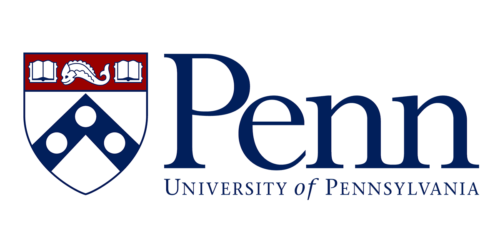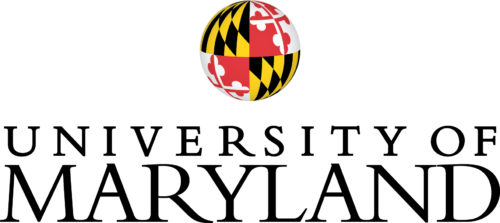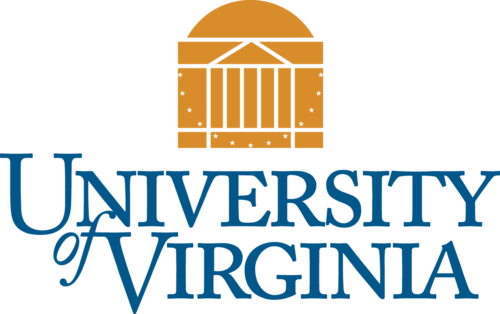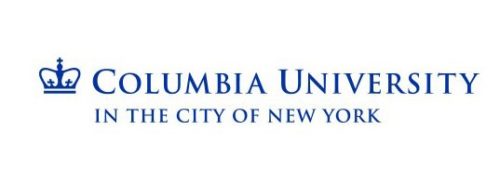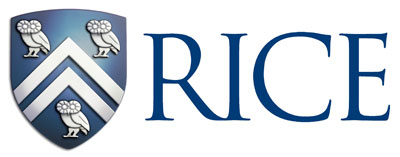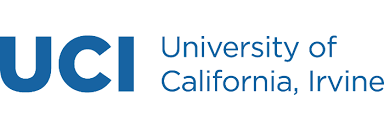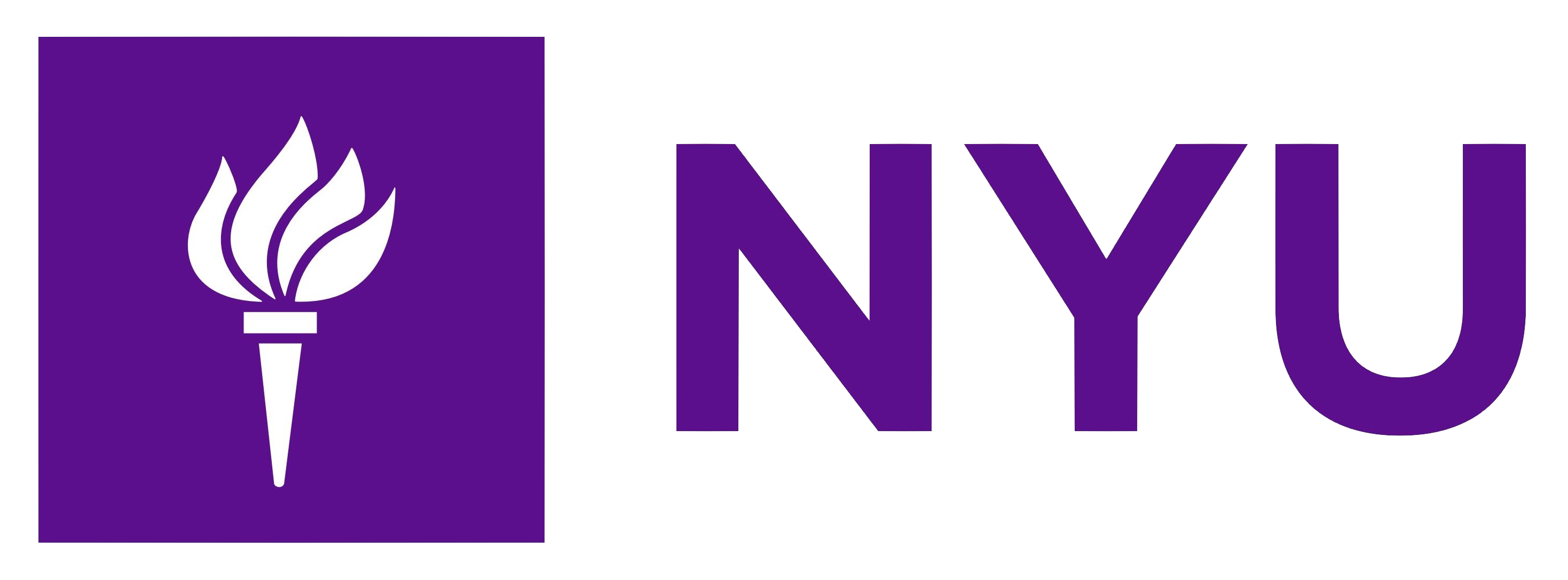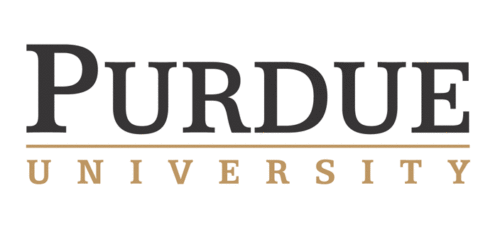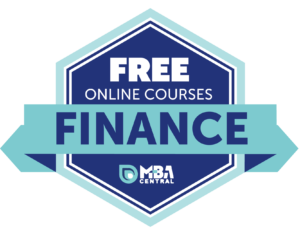
The decision to take free online finance courses is a great first step before managing a career change. One may be finding herself bored with bacteria analysis and desiring to shift out of the lab and into a financial C-suite job needing all of the basics afforded by a Master’s in Business Administration (MBA) degree. Or perhaps, she is already heavily accustomed to the specifics of a weighted average cost of capital and needs to further her knowledge with the ever-expanding bitcoin and distributed ledger possibilities. Regardless of where you are on the road to mastering financial decisions, these free online finance courses can provide a great perspective on the flexible and convenient options available.
Much of the world revolves around the ebb and flow of money. Understanding and efficiently orchestrating so many transactions can make or break a single investment opportunity or an entire company. For example, the massive shift occurring worldwide from onsite office-centered environments to work-from-home and remote style positions needs sound decisions at the helm. Categorizing all available assets in terms of employees, office equipment, and real estate investments is a massive undertaking alone. The need to clearly recognize their value, organize their best usage, and negotiate likely conflicts will maximize those resources and increase the company’s prospects. This is just part of the advising role financial officers play while embedded in all types of businesses, which leads to traditionally large salaries and bonuses. Free online finance courses form a great foundation for anyone wading into this field.
Free Online Finance Courses
Students interested in pursuing a finance specialization will learn how to gather and assemble the information needed to evaluate financial data and guide wise business decisions. These free online finance courses can lead to degree programs, ultimately creating and preparing financial leaders for a wide range of satisfying careers. Just like these classes, even full MBA in Finance programs are now provided online. Through MOOCs on Coursera and edX, everyone can enjoy the flexible, online format to allow students to continue working full-time while earning their finance certificates. The following examines these free online finance courses in more detail and discovers what makes them unique.
Methodology
Determining which free online finance courses were most appropriate to list firstly involves a general overview of finance topics. Secondly, these classes are best considered from the leading schools of business throughout the country, which are best equipped to research, recognize and discuss the latest trends. The courses were gathered to show the entire range available to beginners and up through advanced specialists. Leading the pack are the proven online platforms of Coursera and edX, which are best suited to focusing the lens further. These leading MOOC websites have strong partnerships with many top schools giving a better perspective outside of their own offerings.
#1 Corporate Finance – University of Pennsylvania
Introduction to Corporate Finance is a free online finance course offered by The Wharton School at The University of Pennsylvania and is provided through Coursera. Lasting four weeks and requiring seven hours to complete this class, students learn about personal finance, corporate considerations, and financial arbitration. They also spend time on discounted cash flow, corporate finance, and cash flow analysis while learning decision-making skills. Understanding the time value of money is integral to the first week of class. The interest rates help provide a higher comprehension of the price of money as viewed through a discussion of inflation. This view leads to a more substantial comfort level of discounting and compounding random cash flows in order to weigh values and different claims and provide better fiscal guidance. A capital budgeting case is then analyzed to help clarify some likely real-world scenarios related to expenditures, savings, financing and refinancing, and multiple other situations. Finally, the course caps off with a discussion seeking to understand the return on investments (ROI). Ideally, predicting executed plans and forecasting their returns highlights future free cash flow and is justified by a solid analysis of the assumptions in play. Besides the aforementioned, additional key concepts learned include asset valuation, net present value, the hurdle rate, and the payback period. All of this furnishes the student with an overall financial understanding that further propels them into more advanced financial topics and a rapidly-expanding view of the global financial markets.
The University of Pennsylvania manages a curriculum curated by a world-renowned faculty that includes this free online finance class. Penn’s Wharton School is rated number one by U.S. News & World Report and is also accredited through the selective AACSB. The experienced Michael Roberts teaches this course. The school provides this online finance class as part of their multiple specializations in Business Foundations, Introduction to Finance and Accounting, and Finance & Quantitative Modeling for Analysts. As an original member of the Ivy League, The University of Pennsylvania is one of the United States’ oldest higher education institutions. The university is among some of the best experts in business and makes them highly accessible through these free online finance courses.
Course Name: Introduction to Corporate Finance
Business School: The Wharton School
#2 Entrepreneurial Finance – University of Maryland, College Park
The course entitled Financing and Profiting from Innovation for Corporate Entrepreneurs is meant for aspiring or active corporate entrepreneurs looking to secure and manage the funding for their corporate venture. Hosted through Coursera, this online finance class will help clarify key accounting and financing concepts so entrepreneurs will be freer to guide their business better and stay focused on its ideals. As one of five courses in the Corporate Entrepreneurship specialization, only a minor investment of about 10 hours over four weeks will bring about a wealth of knowledge. The skills garnered from this free online class include the creation of financial statements, practicing valuation techniques, advertising for internal and external financing, and structuring a pitch for funding. New ventures within the corporate environment need to have solid fundamentals, and highlighting them is an important part in the class’s first week. The following week will discover the process of understanding how to assess the venture’s growth and locate its true value. The third chapter entails finding the financing sources and maximizing the company’s growth by funding efficiently. Finally, the student will solidify all of this into a clear investment proposal to land the often sought but hard-won funding. According to U.S. News & World Report, 2020 was the best year for new business launches on the stock market. An excellent way to capitalize on the fast-paced growth is by thinking like an entrepreneur and developing a business. This online finance class can do just that by providing those basics in an organized format free to all.
The Robert H. Smith Business School at the University of Maryland in College Park is well versed in experiential learning, offering on-campus and online courses that include hands-on projects. The University of Maryland’s Smith School is rated #10 by U.S. News & World Report for its online MBA program. The School of Business is also accredited through the prestigious AACSB. The University of Maryland provides this online finance course and nearly 50 other free online programs through the Coursera platform.
Course Name: Financing and Profiting from Innovation for Corporate Entrepreneurs
Business School: Robert H. Smith School of Business
#3 Financial Accounting – University of Virginia
Financial Accounting Fundamentals is a free online finance course that is beginner-focused and requires no prior experience. The class activities focus on the balance sheet, income statement, and the cash flow statement – the three most commonly used financial statements. As the first of four in the UVA Entrepreneurship Specialization series, the commitment is light at only about 14 hours over five weeks to complete. The remaining courses take over three months to further expand and clarify topics focusing on Ethical Leadership, New Models of Business, and the Innovating the Business Model Canvas. A significant component of this online course is understanding and practicing recording transactions as journal entries. During a specified accounting period, those entries are used to create the various statements needed for discussion. With the journal entries and t-accounts summarized, the student has many resources at hand to review annual reports from publicly traded companies. These fundamentals can even shed some light on new emerging technologies like blockchain, especially in light of cryptocurrencies that are difficult assets to understand. These accounting fundamentals can be a life-saver for simple personal budgets and yet are still essential to corporate finance departments. More than 98 percent of the ratings on Coursera qualify this class with four (out of five) stars or better.
Top-rated instructor on Coursera, Luann Lynch, who teaches this free online finance course hosted by Coursera, is a Professor of Business Administration at the University of Virginia. The University of Virginia is a premier institution accredited by the Southern Association of Colleges and Schools, Commission on Colleges. UVA’s Darden School of Business is fully accredited by the AACSB and boasts a #11 ranking in U.S. News & World Report’s listing for best business schools. Much of this solid reputation and recognized performance is attributed to Darden’s signature case method, where experiential learning readily pressures students to grapple with real-world challenges. Decisions will be synthesized with incomplete information analyzed – just like the real world – while the faculty orchestrates the class conversations to build the best solutions. The skills practiced are everything an existing or future employer values most: teamwork, critical thinking, reasoning, problem-solving, and leadership.
Course Name: Financial Accounting Fundamentals
Business School: Darden School of Business
#4 Financial Analysis – University of Illinois at Urbana-Champaign
Applying Data Analytics in Finance is an intermediate-level free online finance course that will push the student’s knowledge and understanding to new levels. For over 23 hours spread across four weeks, students will learn why, when, and how to use financial analytics. Throughout real-world scenarios, time-series data will be analyzed, and the risk-reward trade-off will be continuously evaluated. These techniques will lead to building forecasting models with moving averages and smoothing methods to support decision-making. Another forecasting model that will be utilized to understand stationarity specifically is ARIMA. All students will appreciate its use and learn to build one in R. All of this measuring and modeling will guide the student to ultimately find balance in risks versus returns and to most appropriately evaluate an investment portfolio. There is overlap between skills in analytical thinking, data mining, and even strategic accounting for corporate leadership. Ideally, this course provides a much-needed flexibility to all of today’s students, similarly to many of Gies College of Business’s offerings. The business school helps fulfill all student stages from the beginning of their careers as new accountants to advancing to a certified public accountant, becoming a corporate finance officer, or simply leveraging their analytical skills in a complementary non-accounting career. This free online finance course underscores the rapid change the accounting industry as a whole is undergoing, including needed real-time data visualization, deeper and better-connected business intelligence tools, and even Python and R programming. No longer is everything based on an Excel sheet, and as such, the course provides many answers.
A free online finance class such as this provides a solid foundation for better understanding the global markets. Available through the University of Illinois Urbana-Champaign’s Gies College of Business, this class is hosted on the Coursera platform. It is taught by multiple instructors. This AACSB accredited business school provides multiple cores of focus along with eight different specializations. The University of Illinois in Urbana-Champaign is no stranger to online and distance education. It offers more than 170 free online courses through Coursera, including completely online masters in areas like accounting, computer science, and management.
Course Name: Applying Data Analytics in Finance
Business School: Gies College of Business
#5 Financial Engineering – Columbia University
The free online class: Financial Engineering and Risk Management Part I is appropriate for those beyond the initial investigation of applied math in finance. At approximately 18 hours of work spread across eight weeks, the student will come to understand the ins and outs of financial modeling. As it turns out, the prices of derivative securities in various classes of assets, like fixed income equities and mortgage-backed securities, can be better understood by exploring these financial models. Specifically, instructors Martin Haugh and Garud Iyengar compare the binomial and Black-Scholes models alongside term structure and the Black-Derman-Toy models. Haugh and Iyengar trace the mutations of swaps, futures, and options into credit-default swaps and defaultable bonds, and even mortgage-backed securities in their free online course. As such, throughout the course, the student will balance the quantitative and theoretical tools with risk analysis and see the roles that some of these asset types played in the financial crisis from a little over a decade ago. However specific these ideas seem to focus, financial engineering is very far-reaching in that it draws from mathematics, statistics, finance, economics, engineering, and computational methods. With all of the “rocket science” out of the way, the instructors hope the limitations of theory will clarify the need for a healthy degree of skepticism in viewing these financial models. But at the very least, the skills gained from the course are valuable enough and include pricing assets, discovering financial risk in all types of securities and equities, and choosing the best financial models for analysis. The high ratings for this dense course consistently mention the value of the mathematical formulas and models learned.
Columbia University is home to the number eight best business school on U.S. News & World Report’s ranking. They offer many free online finance courses in partnership with Coursera. The Columbia School of Business is accredited through the AACSB. It offers asynchronous and live-online executive education courses together with their in-person options. And whole specializations are even provided through Coursera and other MOOC platforms for those searching for the most flexible online class structure.
Course Name: Financial Engineering and Risk Management Part I
Business School: Columbia Business School
#6 Financial Markets – Rice University
As the first part of the Investment and Portfolio Management Specialization hosted on Coursera, this free online finance course provides a running start in the world of financial investment. The course is titled: Global Financial Markets and Instruments. Over four weeks, about 20 hours of work is needed to grasp the concepts presented fully. The program is designed to review the roles of financial markets throughout a smooth economy and explore the whole of the financial system in the world today. There are so many vehicles to organize and manage financial assets, from households’ positions to corporations to governments and the financial intermediaries connecting them. Besides the background, asset classes, bond valuations, margins, and securities trading mechanics are essential. Of course, it would in no way be complete without understanding the terms and timelines to each of the various asset classes, especially when looking at derivative instruments. And yet, those ideas only go so far in painting a complete picture of what this concentrated class provides. In concert with the rest of the specialization, one can enjoy a comprehensive overview of portfolio management. The next course teaches that choice isn’t so much an issue as risk is in Portfolio Selection and Risk Management. Biases and Portfolio Selection then discusses different behavioral biases and investment preferences to recognize and overcome mistakes. Evaluating the portfolio performance and discussing style analysis and attribution analysis as other evaluation techniques in light of frame current market trends becomes the next major focus in Investment Strategies and Portfolio Analysis. Rounding out the specialization is the Capstone, in which a simulated investment portfolio is peer-reviewed, case studies are investigated, and a professional visualizer is experienced.
Rice University is where the Jesse H. Jones Graduate School of Business calls home. The Jones Graduate School is accredited through the AACSB – the gold standard of business school accreditation. Buoyed by a robust U.S. News & World Report ranking of #25, many students can confidently choose a Rice business education. Their online MBA was ranked number nine through U.S. News & World Report. The Jones School even offers multiple online executive education programs for those seeking to connect across the globe.
Course Name: Global Financial Markets and Instruments
Business School: Jesse H. Jones Graduate School of Business
#7 Financial Policy – Duke University
FinTech companies have seen remarkable growth as of late, but they are not just about great technology. FinTech leadership requires a strong understanding of the laws and regulations that govern them. This free online finance course titled FinTech Law and Policy clarifies many of the issues surrounding the complicated waters. This course, however, is still a beginner-level class and takes about only 11 hours to complete over a five-week span. Once it is finished, the students will come away with a wealth of knowledge and insight on everything from the legal and regulatory policies surrounding cryptocurrencies to online lending, new payment systems, wealth management technologies, and financial account aggregators. These newer emergent technologies are making it easier to manage wealth for an individual. The caution is they are also exposing many others to more risks. In fact, captured by Wharton’s Business School Professor Richard Herring, even parts of the government want to regulate these new companies the same as banks. And so, of course, Lee Reiners, the executive director of the Global Financial Markets Center at Duke University, teaches even the basics of how U.S. banks are regulated in this class. He continues to illuminate how the strategic partnership has developed between banks and FinTech companies and their regulators. Further along in this course, Reiners discusses what specifically cryptocurrency is and how it’s connected to lending regulation. As you approach the finish line, this free online finance course’s discussion shifts to review FinTech’s modern payment systems and improvements, wealth management advisors and legal issues around the aggregation of financial accounts.
This free online finance course is offered by Duke University. Duke is a respected institution, and its AACSB-accredited Fuqua School of Business is a top choice for students. Multiple master’s programs and executive education programs are offered entirely online to provide the opportunity to develop their careers. Through Duke’s partnership with Coursera, over 70 various classes are offered online to anyone who is interested. Ranked as U.S. News & World Report’s twelfth best university, students joining its ranks will grow considerably by all that Duke has to offer.
Course Name: FinTech Law and Policy
Business School: Fuqua School of Business
#8 Financial Reporting – Indiana University
Financial Reporting I is a free online finance course that provides a strong foundation in financial reporting ideas and techniques to best prepare and analyze financial statements. As part of a MicroMasters program, this course ideally requires at least eight hours per week and continues for about three months. It is not for beginner-level students. The course is packed with advanced accounting principles that provide a deeper understanding of financial reporting and accounting standards, highly beneficial for finance professionals. In this class, both sides of the balance sheet must be measured and aligned correctly. But it’s not just about the numbers, as they must also tell an economic story. It is key to understand the underlying economics of the business activities through the financial reports. Of course, this deep level of investigation leads the students to obtain the tools necessary to understand and execute sophisticated accounting procedures in light of the broader business context. Ken Merkley, the Associate Professor of Accounting, instructs the student in understanding the larger objectives surrounding more unique transactions and that all of them must fit within the U.S. Generally Accepted Accounting Principles. Utilizing the Financial Accounting Standards Board Codification and other resources will enable the student to research more complex topics effectively. With 97% of ratings four stars and above, it’s clear to see the quality presented in this free online finance course.
Indiana University’s Kelley School of Business provides this, amongst many, free online finance courses. As the same highly qualified, dedicated, and world-renowned faculty teaches online and in-person, the student can achieve the best of both worlds and also customize 50% of their elective coursework in their MBA. Best yet, The Kelley School of Business MBA programs are accredited by the AACSB. And, of course, students can be confident in their selection as the U.S. News & World Report ranks Indiana University’s Kelley School of Business online MBA program as number three out of 295. Indiana University provides almost a dozen courses directly through edX and even allows full master’s degrees in Accounting and IT Management through the same online platform.
Course Name: Financial Reporting I
Business School: Kelley School of Business
#9 Financial Risk – Columbia University
In Risk & Return, the students learn how to measure the calculated risk of debt and equity in search of a higher return. This computation helps grasp the actual weighted average of the cost of capital. Although geared for beginners, it is ideal to have a solid knowledge of accounting principles already, be familiar with and versed in Excel, and understand the basics of a firm’s finances through the free cash flow method for corporation valuation. Measuring risk is ideal for learning how to better plan for the growth of a business. It is challenging to predict nature’s storms or truly unforeseen freak events. Still, without the ability to estimate expected returns of any known asset, most companies will flounder with no clear way to plan wisely. However, once that company grows enough to actually take on more assets to justify a new capital structure, the risks involved would need to be recalculated. Integral to this understanding is ultimately what Daniel Wolfenzon, Professor of Finance and Economics at Columbia University, teaches through the weighted average cost of capital calculations. These topics are necessary for any well-managed operation and its professionals in the corporate environment and when anyone is dealing with a personal budget.
This free online finance course is offered by the Columbia Business School, which is ranked eighth-best business school nationwide by U.S. News & World Report. The Columbia Business School, part of Columbia University, is accredited through the United States’ oldest accreditation council, the AACSB. They offer this class in partnership with edX along with almost 40 other online courses amongst seven different MicroMasters, programs, or certificates. Columbia University acknowledges that much of its strength, caliber, and opportunities come from its location in New York City. It continually seeks to connect its research and teaching to the great North American hub’s vast resources. Together with their in-person options on campus, The Columbia Business School provides asynchronous and live-online executive education courses. For those in search of flexible online class structures from a distinctive and distinguished learning environment crossing many scholarly and professional fields, look no further than Columbia University.
Course Name: Risk & Return
Business School: Columbia Business School
#10 Financial Technology – University of Texas at Austin
As the second in a series of financial technology courses, Fintech: Blockchain for Business and Finance presents a business-related examination of blockchain technology, distributed ledgers, and cryptocurrencies. As an intermediate-level course, the students can expect to be challenged academically and spend close to six hours a week for four weeks and closer to 60 to 72 hours to complete the certificate in which they participate. The next class in this series further discusses other modern technologies developing through artificial intelligence and machine learning, including credit-scoring models, crowdfunding, and algorithmic trading. The last one concentrates on the internet of things, explicitly concerning insurance coverage and electronic payments. The whole series explores the competitive marketplace and multiple opportunities for change. And it is within this free online class about blockchain where the first module will focus on cryptography to comprehend hashing functions, encryption, and decryption integral to blockchain technology. The next module will illuminate how transactions and building blocks are created and validated in the distributed ledgers. As the main components are understood, the following module shifts focus to the real-world application within the financial services industry through actual cryptocurrencies. This course continues in terms of digital wallets and exchanges, which become the larger enterprise functions of blockchain and link together authentic communities. Concluding the modules will be an interview with Clinical Assistant Professor Tej Anand, who is an award-winning business-technology strategist currently looking to advise startups on using blockchain to disrupt healthcare. Professor Anand is a perfect example of the world-renown caliber of faculty that resides with U.T. Austin’s McCombs School of Business.
The impressive McCombs School of Business provides this free online finance course hosted through edX. The prestigious AACSB accredits the McCombs school, while its University of Texas at Austin is certified by the Southern Association of Colleges & Schools, Commission on Colleges. This business school ranks as the U.S. News & World Report’s 18th best business school nationwide. The University of Texas at Austin’s number one rated graduate school accounting specialty is a considerable achievement. So much high-quality financial coursework is already available on edX for a truly flexible engagement.
Course Name: Fintech: Blockchain for Business and Finance
Business School: McCombs School of Business
#11 Foundational Finance – University of Michigan
The first of a four-part specialization in financial decision-making, this free online course was created by the University of Michigan. The Introduction to Time Value of Money class is beginner-style in nature. It requires about 13 hours to complete and easily spreads across four weeks for those searching for the most flexible timing. Delivered by the highly-rated Professor of Finance, Gautum Baul, the basic principle underscored throughout this online finance course is understanding time’s worth or the Time Value of Money (TVM). Building on this lesson, the student will come to terms with simple future value, simple present value, and annuities’ future value. Of course, loans, compounding, and valuing perpetuities will further explore how the value of money changes over time. With these premises understood, the implications of all financial decisions will begin to make sense. This carefully structured framework enables the scholar to continue to more advanced real-world applications through the Foundational Finance for Strategic Decision Making Specialization. The next course applies problem-based assignments seen throughout day-to-day financial decisions in Decision Criteria & Applications. Following in Stocks and Bonds, the valuation, structure, and pricing of stocks and different types of bonds, including zero-coupon and government bonds, are investigated. Last, the notion of risk and its relation to the return will ultimately frame the conversation to see the valuation of projects and whole companies. This specialization helps those in an MBA program or just want to learn the financial foundations underpinning the world’s economies.
The highly regarded Ross School of Business created this free online finance course and hosts it through Coursera. The University of Michigan is home to this AACSB accredited business school. Michigan Ross ties for 12th place on the U.S. News and World Report’s list for best business schools. The University of Michigan explores over 100 topics through Coursera’s platform and quite often reproduces the content in multiple native languages to better reach the world’s learners. The University even has six different 100% online degrees and certificates on Coursera with masters in applied data science and public health. Ross School of Business is top-ranked, offering action-based learning to prepare graduates for today’s ever-evolving world.
Course Name: Introduction to Time Value of Money
Business School: Ross School of Business
#12 Intro to Finance – University of California, Irvine
This free online finance course is part of an available 10-part specialization produced by the University of California, Irvine. It only requires seven hours to complete but can easily be spread out across eight weeks for those in search of the most flexible options. So many basics are intrinsic to the most advanced topics within finance education programs. This class offers a central understanding of finance and accounting concepts that other classes gloss over and cannot relate well to non-finance perspectives. Specifically, the skills earned in planning, forecasting, and budgeting are fundamental to every type of business and even everyone’s personal financial stability. Besides the regular importance of financial interpretation through cash flow, costing, and valuation, this course also reviews key ratios to solidify the concepts outside of more strict financial formulas. And outside of this class, the previously mentioned Career Success Specialization will build the remaining essential skills necessary in the workplace regardless of the employment changes encountered along the way. Project management, personal time management, communication, writing, negotiation, and entrepreneurship are just some of the many notches available to add to one’s belt through this specialization. Towards the end, the capstone project urges direct and specific usage of all of the knowledge, as mentioned earlier, to demonstrate true career readiness. This practice will add daily value to almost every facet of life by efficiently and effectively gathering, synthesizing, analyzing, and communicating information.
Besides this free online finance class, students can satisfy their curiosity through more than 150 additional courses through the University of California, Irvine. They range across many financial topics such as blockchain, risk management, and macroeconomics and are all offered via Coursera. UCI offers many of these learning avenues to its students through its partnership with Coursera, including a complete Project Management degree. The AACSB accredited Paul Merage School of Business at the University of California, Irvine, is further distinguished by U.S. News & World Report’s solid ranking as its 67th best business school. The school’s holistic approach to education aims to create adaptive students who face industry disruption head-on, even seek it out directly, and find real success.
Course Name: Finance for Non-Financial Professionals
Business School: Paul Merage School of Business
#13 Machine Learning in Finance – New York University
New York University offers this free online finance course titled Guided Tour of Machine Learning in Finance. This intermediate-level course takes approximately 24 hours to complete over a four-week time period. Students must have already acquired a certain level of knowledge in several concepts regarding machine learning before they begin this course. Experience with coding Python, performing linear algebra and basic calculus, and translating basic probability theory are necessary to complete assignments in this course. And, as a part of a Machine Learning and Reinforcement Learning in Finance Specialization, this course is just the first of four that dive deeply into a comprehensive breakdown of the field of machine learning. This one specifically focuses on the applications within finance to the point that supervised machine learning methods could predict bank closures in the class’s capstone project. But the main goal of the Guided Tour of Machine Learning in Finance is to figure out what machine learning actually is and how many different financial problems could use its clarifications. Ideally, there are three categories of interested students: the practitioners working at financial institutions, day-traders wishing to incorporate ML modeling, and full-time students pursuing degrees in anything from Finance to Computer Science to Physics. The practical applications of machine learning abound for these and other related disciplines. Igor Halperin is the course instructor dedicated to bringing many into familiar terms with machine learning.
NYU offers this free online finance course. Even though this specific course is offered through the Tandon School of Engineering, NYU is known for producing successful business education programs. Its proximity to New York City is advantageous to the business program. U.S. News & World Report recognizes the Leonard N. Stern School of Business as #10 among the nation’s top schools, and its Part-time MBA is ranked fourth-best. Of course, the AACSB fully accredits the Stern School of Business. Now, NYU does provide many MOOCs through edX in addition to the programs originally highlighted in the above paragraph. In fact, almost 20 different courses are offered and vary from cybersecurity in computer science to reinforcement learning in finance and are all free on edX.
Course Name: Guided Tour of Machine Learning in Finance
Business School: Leonard N. Stern School of Business
#14 Modern Finance – Massachusetts Institute of Technology
This free online finance course consists of a mathematically rigorous framework constantly pushing to understand financial markets and is delivered with data-driven insights from three distinguished professors. All hailing from the Massachusetts Institute of Technology, Professors Leonid Kogan and Jiang Wang join Senior Lecturer and Research Scientist Egor Matveyev to layout an advanced course meant to almost entirely prepare the students for the Certified Financial Analyst exam. The course is the first in a series that helps introduce four other classes to form a MicroMasters program in finance produced by MIT. As mentioned, some considerable effort will be needed to successfully navigate this course during its three months consisting of 10 to 14 hour weeks. Within Foundations of Modern Finance I, the learner will understand the valuation of fixed income securities like mutual funds and common stocks traded daily across the world. Risk analysis is incorporated into the lessons, as are arbitrage pricing theory and the hypothesis of efficient markets. The introduction must include corporate finance and capital budgeting through free cash flow modeling and t-accounts. Derivative securities, or securities representing an underlying asset mix or class of assets, need valuation as well. And after these concepts are wholly understood, the course will then move to portfolio theory to seek out and plan for investment opportunities and use the capital asset pricing model to clarify calculated risk and expected return. After these pieces are appreciated, the applications of financial decisions in corporations can be evaluated in terms of real options, capital structures, varying payout policies, and corporate bonds. This interaction between investment and financing will be acknowledged and thoroughly discussed in class.
Massachusetts Institute of Technology produced this free online finance course and offered it through edX. MIT’s Sloan School of Management holds to the University’s respected reputation. U.S. News & World Report appreciates the business school at the number five spot amongst the United States universities. The Sloan School of Management is also AACSB accredited. Additionally, MIT generously gives an almost overwhelming number of online courses (over 200), including 11 full programs covering a massive variety of subjects all through edX.
Course Name: Foundations of Modern Finance I
Business School: Sloan School of Management
#15 Personal Finance – Purdue University
Personal Finance is a free online finance course that will guide the learner to effectively manage money with practical solutions to crucial insurance, credit, investment, and retirement questions. Professor of Consumer Economics at Purdue University, Sugato Chakravarty, weaves together introductory level topics and asks for a commitment of only three to four hours per week over a five-week period of time. But the content is engaging for the beginner, needing only some high-school math, and is focused on everyday issues encountered no matter what step along life’s journey. Having the knowledge and ability to calculate the time value of money is an important consideration that rings true throughout life. Insurance questions can focus on how life insurance may be supplementing retirement savings or how health insurance may support retirement savings. Credit questions would discuss everything from merely how it works to better understanding the origin and ultimate costs of those pesky interest rates. Investment questions will center around why there’s so much news devoted to buying and selling and how these roller-coaster stocks could better financial positions through life. Investing discussions will go hand-in-hand with needed retirement savings goals and expected retirement returns, too. Recognizing the interplay of insurance, credit, and investments helps focus the user on when and where to each vehicle most effectively. And seeing all of this from a professor’s viewpoint will take out a lot of the guesswork encountered from simply reading the news and ultimately help prepare the student to handle better the more unexpected routes life takes.
Purdue University’s Krannert School of Management produced this wonderfully accessible, free online finance course for all to embrace. The Krannert School of Management is accredited through the AACSB and is tied for 80th place on U.S. News & World Report’s list for the best business schools. Purdue University has a rather solid catalog of eight different programs, including full master’s degrees in civil engineering, electrical and computer engineering, and even mechanical engineering. Their MicroMasters programs include Quantum Computing in Computer Science and Structural Design in Engineering. There are almost 70 online courses from Purdue hosted through edX.
Course Name: Personal Finance
Business School: Krannert School of Management
What does a career in finance look like?
On top of the understanding gained from partaking in one of the aforementioned free online finance courses that apply to daily life, there are also full careers within multiple industries. More straightforward finance opportunities outside of high school include insurance sales agents who sell one or more types of insurance and connect with potential customers. Further up the chain, and likely requiring a bachelor’s degree, are financial analysts who guide individuals and businesses making investment decisions as small as choosing credit cards to ones as large as overseeing a yearly capital expenditure budget. One of the following average salaries could be enjoyed after gaining an MBA in Finance and signing-on to a top-tier finance position.
The following are average financial career salaries according to PayScale:
- Chief Financial Officer: $136,205
- Investment Banker: $101,258
- Finance Manager: $92,633
- Accounting Manager: $72,779
For instance, the Financial Manager creates the reports, directs investment activities, and develops plans for corporations’ long-term financial goals. As mentioned above in the free online finance course: Financial Reporting I from Indiana University, these reports are the industry’s essential foundations. No matter the specific occupation chosen for the various types of Financial Managers, their growth will consistently increase for at least the next eight years. Financial Managers will need some dramatic support as they grow at an insane rate of 15% growth versus the average 3-4%, as the industry flexes and the world economies continue to scale. Credit and Insurance Managers are types of Financial Managers who oversee an organization’s credit and insurance businesses and may determine credit or risk limits, respectively. Financial Managers’ multiple functions, including cash and risk management, are expected to be in high demand touching numerous industries. It is the ideal time to get into these financial careers. Just select and enroll in one of the free online finance courses suggested higher up in this article.
How do you become a Finance Manager?
Since financial managers’ employment will grow much faster than the average for all occupations over the coming decade, setting sights on becoming one is an excellent idea for a future career. Start today by reviewing the above list of free online finance courses and try one out. Financial managers typically need a bachelor’s degree that doesn’t necessarily need to be in finance itself. The discipline can easily cross borders, especially true in today’s explosive development in financial technology applications. More and more financial managers need to understand coding through Python and R languages to better discover and present their data. Of course, five years or more experience in other business or financial occupations like accountants or securities sales agents is also highly desirable.
What can you do with an MBA in Finance?
Completing an MBA program from any of the previously mentioned business schools will help prepare you to advance in a career as a Financial Analyst, Financial Advisor, Controller, Vice President of Finance, Chief Financial Officer, and more. It can all start with one of the free online finance courses listed above. Controllers direct financial report preparations that summarize and forecast a company’s financial position, including selecting the visualization manner or software. Controllers are also in charge of arranging governmental reports required by various agencies that regulate businesses. Often, controllers oversee multiple departments, including their organization’s accounting, audit, and budget sections. Another type of Financial Manager, the Treasurer, directs an organization’s budgets to meet its overarching financial goals. They oversee investment plans and other ideas to raise capital, like issuing stocks or bonds, to further develop their growth. They also architect financial plans for mergers (when two companies join together) and acquisitions (when one company buys another). Believe it or not, many fulfilling and leading careers can start from a single online finance class.
What are some ways that students and professionals can specialize in finance?
The Financial Technology Professional Certificate program from the University of Texas at Austin provides an overview of the most recent technological progress that radically changes the financial services industry and many other industries that continuously rely on automated financial transactions. As mentioned before in this list of free online finance courses, the Fintech: Blockchain for Business and Finance course will open minds to a world full of possibilities. And with the financial services industry undergoing such a massive transformation, it’s a momentous time for everyone in the field. Plus, no matter where home is located, so much of the world is mixed into FinTech investment, with the top three countries providing 67% of total funding in the fourth quarter of 2020. According to Deloitte, the US-based FinTech investments alone stand at close to 41%, while India comes in second at 16%, and the UK-based investments are at 10%. Transitioning from a centralized, heavy-regulated industry to distributed ledgers balanced on digital trust (through blockchain) has the potential to focus the industry into simplicity and efficiency – and it’s happening everywhere. New financial services infrastructure and processes will need to be established to compensate for the dramatic adjustments no matter which country begins its shift. Much of what blockchain can do and might actually be displacing right now is the hottest topic in FinTech’s rapidly changing world.
